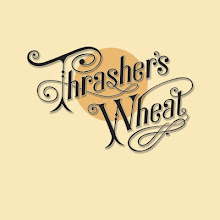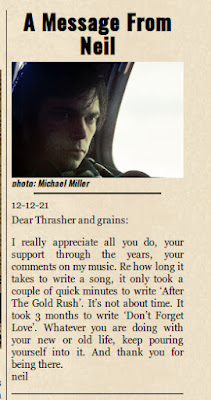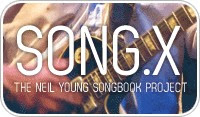Comment of the Moment: The Difference between Art and Entertainment:
The Neil Young Comment of the Moment is from The Difference between Art and Entertainment by D.I. Kertis:
"It is a mark of good art that an audience can relate".
This relates mainly to the emotional level. There are certain emotions that are programmed into all sane, functioning human beings. If an artist does a good job--expresses these feelings well as they pertain to him--others, simply because of the way we are "wired" should be able to relate. Of course, connection can also occur at an intellectual level. If someone is enlightened, feels validated, or at least can see where the artist is coming from when he chooses to express his thoughts and perspectives on concrete issues, this again means he has done a good job of expressing himself.
And that, of course, is the true mark of art: does it express the artist effectively? Does it convey the thought or feeling that a reasonably intelligent, thoughtful and insightful person can understand it, even if, as in an abstract poem (or one of Neil's abstract songs), the precise circumstances are left intentionally ambiguous? If so, the artist has succeeded. If not, he has failed. Simple as that. Neil has, in my view, a record of more success than failures by that standard.
Then there is the difference between art and entertainment.
Actually, it is more complex than I originally let on. The complication is that the same piece can be viewed from both perspectives and called both things. If what you are appreciating is the overall package, how all the elements come together to form what you consider an aesthetically pleasing whole, you are perceiving the given work as entertainment. If are discerning some or all the feelings and/or thoughts the piece seems to be expressing, not just its aesthetics, then you are viewing the work as art. So it is usually not fair to say that one piece is "art" and another "entertainment." This depends on how you're looking at it. Even in a work designed primarily for entertainment, such as an action or adventure film, it is rare that nothing of the creator/s shows through. Self-expression is natural when creating because you know you're perspective--thoughts and feelings--best and because we're wired for self-preservation and betterment and want space to be cleared for us rather than people trampling over us. It's also just instinct at times to add depth for a more prescient audience to appreciate.
There are also times when the artist or creator's design differs from the result. His work is viewed differently than how he intended. In one sense this means he has failed--he has not expressed himself or not accomplished what he set out do. Yet he also unintentionally succeeded in a sense, by creating something others can enjoy, even if for what he would consider the wrong reason.
And there is the part that lies with the audience: interpretation. How much stock should an artist put into misinterpretation? If he was misinterpreted by a person of decent intellect, this is a cause for concern. If a moron mistook his meaning, however, he not be alarmed. For intelligence and insight are prerequisites for appreciating art and even entertainment for what they are. Creators--whether of art or entertainment--should never "dumb" or "water" anything down for their audience, and nor should anyone expect them to. Always assume your audience is intelligent. Aim to challenge it some level if at all possible-- this will always make for a more interesting, rewarding, and fulfilling experience for the people you want your work to cater to and will likely bring them back when you make more available.
There is little point in saying something aloud if it is destined to fall on deaf ears or dumb minds.
Thanks -- as always -- D.I. Kertis!
More on The Difference between Art and Entertainment.































 Human Highway
Human Highway

















 Concert Review of the Moment
Concert Review of the Moment





 This Land is My Land
This Land is My Land

 FREEDOM In A New Year
FREEDOM In A New Year









 *Thanks Neil!*
*Thanks Neil!*




![[EFC Blue Ribbon - Free Speech Online]](http://www.thrasherswheat.org/gifs/free-speech.gif)











 The Unbearable Lightness of Being Neil Young
The Unbearable Lightness of Being Neil Young Pardon My Heart
Pardon My Heart



 "We're The Ones
"We're The Ones  Thanks for Supporting Thrasher's Wheat!
Thanks for Supporting Thrasher's Wheat!




 This blog
This blog 
 (... he didn't kill himself either...)
#AaronDidntKillHimself
(... he didn't kill himself either...)
#AaronDidntKillHimself









































































 Neil Young's Moon Songs
Neil Young's Moon Songs




 Civic Duty Is Not Terrorism
Civic Duty Is Not Terrorism Orwell (and Grandpa) Was Right
Orwell (and Grandpa) Was Right


 What's So Funny About
What's So Funny About 



7 Comments:
I don't like referring to anything as "art" simply because I think the term has been overused/abused in the last 60 years. If the difference between art and entertainment is purely subjective, then there is no real difference. Especially if the the subjectivity can be altered by someone else's opinions (ie: critics, peers).
When someone can refer to something like a 'found-object' installation as art, and then turn around and speak about something as beautiful as the Sistine Chapel and also call it art, I don't see the value in the term. Especially when the only justification someone can use to defend something that is total crap and took zero effect is to call it art. That is lazy and ineffective.
The real difference between art and entertainment is the difference between the social classes.
-Neal Neal Bo Beal
We just want some Rock And Roll !
Great comment.
Neil would argue, I believe, that his art is meant to be interpreted on a personal, subjective level, and that regardless of your interpretation, it is correct, even if it differs from his own interpretation of what he's saying. The subjective interpretation is always correct to the observer.
I'd add that even art that conveys distinct, universal ideas or feelings is interpreted differently by everyone, even if subtly so... primarily due to the role that personal experience plays in the processes that guide and create our feelings, or even the memories that a feeling causes to surface.
"I don't like referring to anything as "art" simply because I think the term has been overused/abused"
Good point. That is the very reason I avoid using the common term, "The Arts." This reduces the idea to a module while "art" is more open-ended. Who is to say what is and isn't art? Who said "art" must adhere to certain aesthetic or intellectual sensibilities and exclude others? We have told someone or ourselves been told, "That's a matter of taste." Our taste is this--which aesthetic and intellectual sensibilities each of us as an individual is attracted to. Because emotion in art is about relation and understanding--"feeling" what the artist is saying--this too is an element of the "intellectual" classification.
And I reiterate my definition of art from past writings: a creative work which is designed to express the feelings and/or thoughts of its originator. So when someone says "This isn't art", that is purely according to their own taste. People have come to misunderstand what can be called and art and replace it with taste--common taste sometimes, but taste nonetheless. That being said, as I explained above, art can be interpreted as entertainment and vice versa. That is the subjective part. This is because there is an aesthetic and intellectual side to every creative work. As an audience, we can choose to appreciate one, the other, both, or neither. At its outset, a piece can fall into one category or another; its inception may see it as either/or, through that ever fascinating, complicating, and confounding human behavior known as "interpretation."
Interpretation is when everything gets a whole lot more complex. One man or woman sitting in the office or the study knows exactly how he or she wants his or her finished work to appear and what he or she wants it to convey. When the work is at last completed to this artist's satisfaction and placed before the general public, a wider variety of intellectual levels is suddenly at play. The work is now subject to perhaps 10s of thousands of minds rather than one. Each of these 10s of thousands will appreciate and relate to the work differently. Some people are simply more insightful than others. It depends upon your level of education; if you were brought up around intellectual, insightful people and taught to be the same way; the strength of your imagination--your ability to think figuratively or "outside the box"; if you are interested in thinking or you simply function from day to day without ever think about how and why, a profile which some members of our species sadly fit to a T. All of these things affect an individual response. In addition, are you likely to be judgmental? Do you have bitternesses, biases, and prejudices you carry into things? Do you tend to project your own frustrations onto others? This last criterion is something almost all of us naturally do, likely because we have trouble thinking outside of ourselves and our own points of view. Why? To start with, all we know is ourselves and this remains the thing we know most intimately all of our lives. Because of this, we become a measuring stick in our own minds for other people, instinctively. Our brains have to be tied to us for survival but when it comes to appreciating art--the expressions of OTHERS--this becomes problematic. So in a strange paradox our human intellect struggles to comprehend something borne of itself--Art. If we create our own we can understand it perfectly but because of the survival-oriented part of the human mind, others' is more difficult to digest. This is why we get morons "overanalyzing" and reading false motives into the work of other artists--they project their own prejudices and instabilities.
Yet--without this element of interpretation, art would not be a third as fun as it is, for the joy of exercising the brain is greatly enhanced by an attempt to take in the viewpoint of another; multiply this by the number of potential viewpoints in the world and what you are left with is ecstasy for the active mind. What makes art frustrating is also what makes it exhilarating, fascinating-- ultimately worthwhile: trying to pin down what it's all about!
DIK
D.I...No wonder Thrash likes to use your posts as a topic thread..
you always put it so succinctly...
If you continue like this, who knows... you just might become a formidible writer one day!!
luv doc
Putting it simply...
Beauty is in the eye of the beholder...Amen
Post a Comment
<< Home